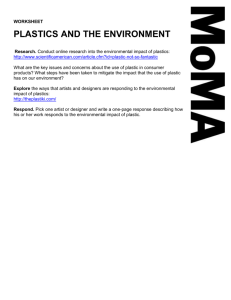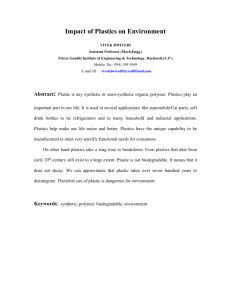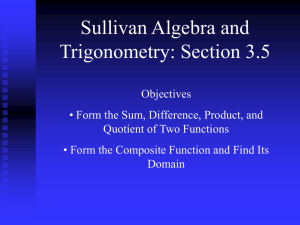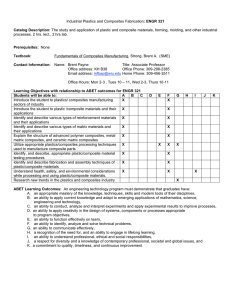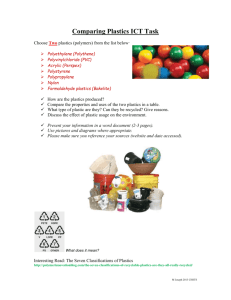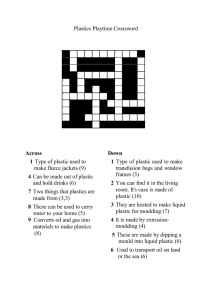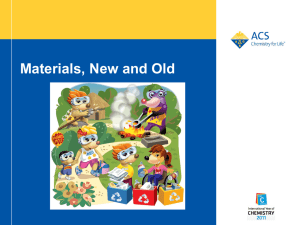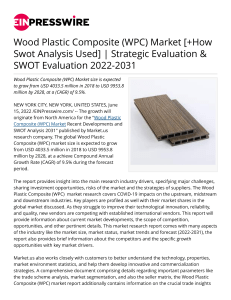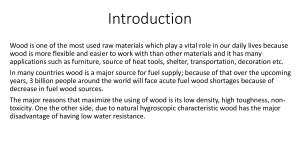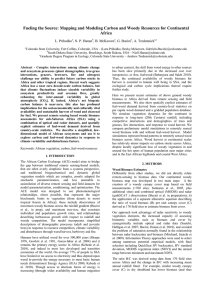Using Small Diameter Trees for Wood Fiber-Plastic Composites Phil T. Archuletta
advertisement
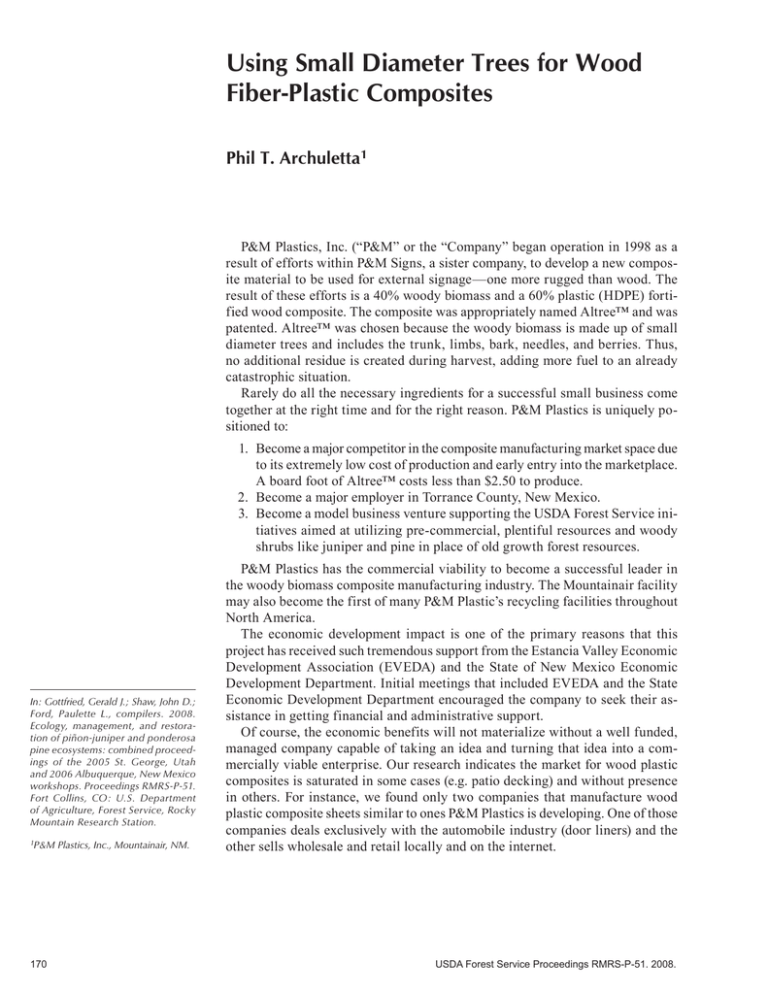
Using Small Diameter Trees for Wood Fiber-Plastic Composites Phil T. Archuletta1 P&M Plastics, Inc. (“P&M” or the “Company” began operation in 1998 as a result of efforts within P&M Signs, a sister company, to develop a new composite material to be used for external signage—one more rugged than wood. The result of these efforts is a 40% woody biomass and a 60% plastic (HDPE) fortified wood composite. The composite was appropriately named Altree™ and was patented. Altree™ was chosen because the woody biomass is made up of small diameter trees and includes the trunk, limbs, bark, needles, and berries. Thus, no additional residue is created during harvest, adding more fuel to an already catastrophic situation. Rarely do all the necessary ingredients for a successful small business come together at the right time and for the right reason. P&M Plastics is uniquely positioned to: 1. Become a major competitor in the composite manufacturing market space due to its extremely low cost of production and early entry into the marketplace. A board foot of Altree™ costs less than $2.50 to produce. 2. Become a major employer in Torrance County, New Mexico. 3. Become a model business venture supporting the USDA Forest Service initiatives aimed at utilizing pre-commercial, plentiful resources and woody shrubs like juniper and pine in place of old growth forest resources. In: Gottfried, Gerald J.; Shaw, John D.; Ford, Paulette L., compilers. 2008. Ecology, management, and restoration of piñon-juniper and ponderosa pine ecosystems: combined proceedings of the 2005 St. George, Utah and 2006 ­Albuquerque, New Mexico workshops. Proceedings RMRS-P-51. Fort Collins, CO: U.S. Department of Agriculture, Forest Service, Rocky Mountain Research Station. 1P&M 170 Plastics, Inc., Mountainair, NM. P&M Plastics has the commercial viability to become a successful leader in the woody biomass composite manufacturing industry. The Mountainair facility may also become the first of many P&M Plastic’s recycling facilities throughout North America. The economic development impact is one of the primary reasons that this project has received such tremendous support from the Estancia Valley Economic Development Association (EVEDA) and the State of New Mexico Economic Development Department. Initial meetings that included EVEDA and the State Economic Development Department encouraged the company to seek their assistance in getting financial and administrative support. Of course, the economic benefits will not materialize without a well funded, managed company capable of taking an idea and turning that idea into a commercially viable enterprise. Our research indicates the market for wood plastic composites is saturated in some cases (e.g. patio decking) and without presence in others. For instance, we found only two companies that manufacture wood plastic composite sheets similar to ones P&M Plastics is developing. One of those companies deals exclusively with the automobile industry (door liners) and the other sells wholesale and retail locally and on the internet. USDA Forest Service Proceedings RMRS-P-51. 2008.
